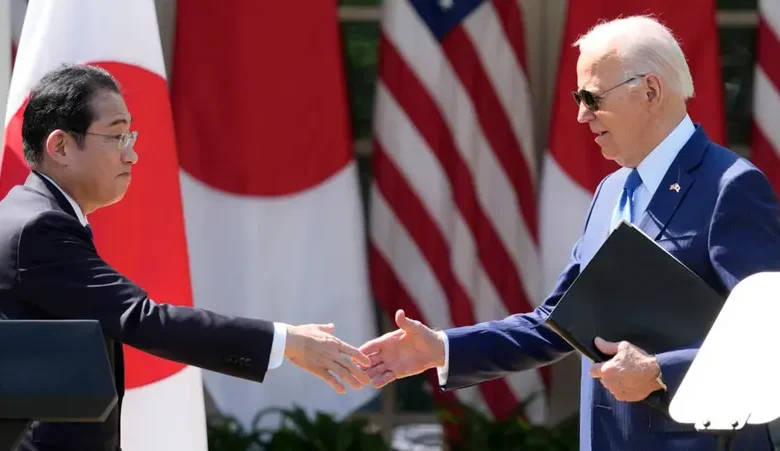Joe Biden criticizes ally Japan as ‘xenophobic’ along with China, Russia

US President Joe Biden included ally Japan along with rivals China and Russia in a list of countries he called “xenophobic” in a speech at a campaign fundraising event in Washington.
Biden reiterated remarks he made last month linking China’s economic woes to its unwillingness to accept immigration. This time he added Russia, but also longstanding ally Japan, whose Prime Minister Fumio Kishida he welcomed for a summit and state dinner in Washington three weeks ago.
“You know, one of the reasons our economy is growing is because of you and many others. Why? Because we welcome immigrants,” Biden told Asian American and Pacific Islander donors Wednesday. “The reason – think about it – why is China stalling so bad economically? Why is Japan having trouble? Why is Russia, why is anyone? Because they’re xenophobic, they don’t want immigrants.”
His criticisms and the fact that Japan was mentioned alongside two major US rivals could raise hackles in Tokyo. The US and Japan announced a “significant upgrade” to their defense ties last month, citing the need to counter China’s “dangerous” actions in the Indo-Pacific region.
The April summit in Washington was overshadowed by Biden’s stance on a plan for Japan’s Nippon Steel Corp to buy United States Steel Corp, after he said the firm should remain US-owned.
Japan’s government acknowledges its aging and shrinking population is a source of concern with Kishida himself saying the issue threatens society’s ability to function. The country’s also gradually opening the door to more immigrants, many of whom are filling jobs in sectors where there are shortages of workers.
The number of foreigners resident in Japan rose to a record high of 3.4 million in December 2023, up 10 percent on the previous year and representing about 2.7 percent of the population of about 124 million.
A survey by Japan’s Asahi newspaper published last month found 62 percent of respondents said more foreign workers should be accepted, compared with 44 percent in a similar poll in 2018.










